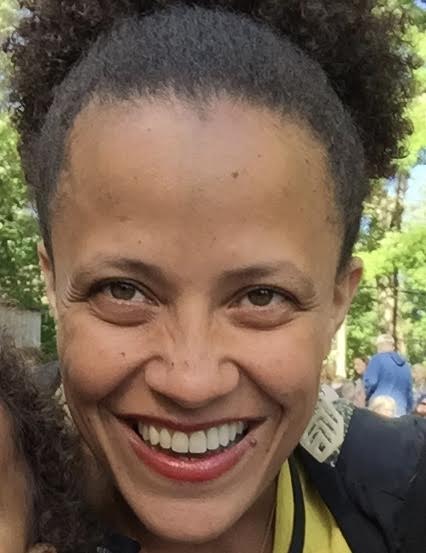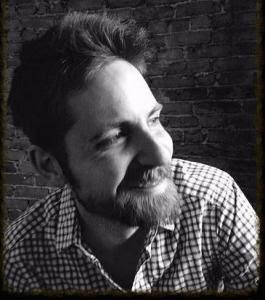Meet the New School of the Arts Faculty
The School of the Arts is welcoming eight new faculty members, and is welcoming back four familiar faces in new roles.
Performing Arts
New:

Lizzy Cooper Davis, assistant professor
BA, Brown University
MA, New York University
AM, PhD, Harvard University
Davis is an artist and scholar interested in how the arts can facilitate community conversation, resistance, and change. Trained as an anthropologist, and particularly focused on black freedom movements, she has conducted research in Cuba, Brazil, and New Orleans, and her current project examines the cultural workers of the civil rights era.
She has trained with Augusto and Julian Boal and used their methods in schools, community centers, and prisons. Additionally, she was the facilitation trainer for Anna Deavere Smith’s Notes from the Field: Doing Time in Education at the American Repertory Theater, and works as a consultant on black cultural history and arts- and values-based organizing with the Urban Bush Women.
She has performed nationally as an actor in such theaters as Second Stage, The Public Theater, The Long Wharf, Berkeley Rep, and the American Repertory Theater, and with such directors as Liesl Tommy, Anne Bogart, and Mary Zimmerman. She has also worked in television, film, and radio. Davis co-edited Enacting Pleasure: Artists and Scholars Respond to Carol Gilligan’s Map of Love (2010) and her work on the freedom songs of the civil rights movement has been published in the roots music journal No Depression.
ECT: What, to you, is the most exciting development in/element of your field/specialty?
LD: Right now, I’m particularly excited about Koritha Mitchell’s book, Living with Lynching: African American Lynching Plays, Performance, and Citizenship, 1890–1930. It is quite powerfully shifting my understanding of what it meant and took to survive racialized violence then, and what arts- and community-based tools might be available to us now. I’m also excited about the ways Mitchell is challenging what has been an over-reliance on photographic evidence in our efforts to understand the history of lynching—evidence largely created by white perpetrators of and bystanders to this violence.
ECT: Name one thing you cannot wait to teach your students this year.
LD: I’m eager to share Mitchell’s work and the lynching plays she discusses with my students and to put them in conversation with contemporary efforts to leverage the arts to support black life in the face of black death. One such effort is the international short play festival Black Lives, Black Words, and the festival plays in Reginald Edmund’s just released collection, Black Lives, Black Words.
ECT: What do you do when you’re not working?
LD: When I’m not working I’m either running in a park, researching animals, or having a dance party with my 3-year-old daughter and 5-year-old son.
Sariva Goetz, assistant professor
BA, University of Arizona
MA, New York University
Goetz was assistant conductor of the original Broadway company production of Les Misérables, and served as musical director on the Off-Broadway productions of The Jerusalem Syndrome, Splendora, and American Princess. She was pianist and/or rehearsal pianist for a number of Broadway shows, including Sister Act, Dirty Rotten Scoundrels, Beauty and the Beast, Miss Saigon, and Sweeney Todd. In 2014, she was honored at Broadway Salutes as a 25-year inductee.
Prior to coming to Emerson, Goetz taught at SUNY New Paltz, New York University, New Jersey City University, Westchester Community College, and American University.
ECT: What, to you, is the most exciting development in/element of your field/specialty?
SG: The thing that I enjoy most about my field is the collaborative aspect of musical theater. It takes dozens, and sometimes hundreds, of people to put a musical together, and I love how literally everyone’s contribution is important to the final product.
ECT: Name one thing you cannot wait to teach your students this year.
SG: I am excited to teach my students about this collaborative process.
ECT: What do you do when you’re not working?
SG: I am always working…but when I find a rare moment of down time, I like to spend it with friends and family, having a nice meal or seeing a show.
New Roles:
Artist-in-Residence Daniel Burmester G’16, most recently production manager for Emerson Stage and studio supervisor for the Office of the Arts, will teach courses in theatre studies. He has directed theater productions at the Priscilla Beach Theatre, Company One, Vermont Academy, and Emerson, and has acted in venues across the country. He has been on faculty at Vermont Academy and the New England Youth Theatre, and co-founded GUTWorks Theatre Company.
Assistant Professor Bethany Nelson ’82 has been a senior theatre educator-in-residence since 2013 and head of undergraduate Theatre Education since 2012. Her research on applied drama and theater for at-risk urban youth has appeared in Youth Theatre Journal, Drama Australia Journal, and the textbook Key Concepts in Theatre/Drama Education. She has been a featured speaker at the Tufts University Theatre Education Symposium and has worked with the American Alliance of Theatre and Education, National Drama, International Women’s Leadership Association, and the Association for Theatre in Higher Education.
Visual and Media Arts
For profiles of the four new VMA faculty members, check out “Junebug Producer, Barracuda Director Among New VMA Faculty.”
In addition, Maria Agui Carter, a producer-in-residence at Emerson since 2015, has been named an assistant professor and will teach courses in television and film producing. Formerly an in-house producer for WGBH, she founded Iguana Films in 2000 and writes, produces, and directs dramatic and documentary pieces that are screened internationally. She recently directed the premiere episode of the PBS children’s series Scigirls Latina. Her producing work for PBS includes The Devil’s Music (2000), No Job for a Woman (2013), and Rebel (2013), which she wrote, produced, and directed, and which won an Erik Barnouw Honorable Mention Award.
Writing, Literature and Publishing
New:

Matthew McMahan; visiting artist-in-residence
BA, Olivet Nazarene University
MFA, Stony Brook University
PhD, Tufts University
McMahan assistant directed Is He Dead? (2015) by Mark Twain and David Ives, and worked as a dramaturg on Alice in Wonderland (2016) at the Boston Center for the Arts, as well as on other productions with Imaginary Beasts, DRD Theatricals, and Atlantic Theatre. He is currently a resident cast member at ImprovBoston in Cambridge.
His writing has appeared in the Journal of Dramatic Theory and Criticism, The Texas Theatre Journal, and the New England Theatre Journal, and he has contributed to the recently published collection of essays Hats Off, Gentlemen: Changing Arts of Communication in the Eighteenth Century (2016).
Before coming to Emerson, McMahan taught at Merrimack College, Tufts University, Dean College, and Stony Brook University.
ECT: What, to you, is the most exciting development in/element of your field/specialty?
MM: The field of comedy and the potential for comics to work has grown rapidly over the past few years: Netflix, YouTube, Hulu, all the various podcasts. There are simply more ways to make and disseminate comedy than ever before. Emerson’s BFA in Comedic Arts is a symptom of that growth, and so it is a privilege to be able to work with this community of aspiring artists in an institution that can connect them with all types of mediums.
ECT: Name one thing you cannot wait to teach your students this year.
MM: I teach the history of comedy and for me, some of the most fascinating and weird material comes from the medieval farces. One play is called The Farce of the Fart, about a husband and wife who take each other to court to dispute which one of them was responsible for a particularly onerous smell. There’s also a farce called The York Crucifixion, about the soldiers who crucified Jesus Christ. Even in these short, dark, and crude pieces, we find a whole host of cultural attitudes, assumptions, anxieties, and behaviors. These very old plays demonstrate to me just how revealing of a culture comedy can be.
ECT: What do you do when you’re not working?
MM: I perform as a resident cast member at ImprovBoston. I love making people laugh and taking great risks on stage (even when those risks bomb), and I feel it enriches the work I do in the classroom.
Adam Spry, assistant professor
BA, Pacific Lutheran University
MA, PhD, Columbia University
Spry’s manuscript, Our War Paint Is Writers’ Ink: Anishinaabe Literary Transnationalism, is under contract with the State University of New York Press. He has also contributed to a collection of essays on the poet Gerald Vizenor, to the online journal Public Books, and to the nonfiction anthology Critical Survey of Graphic Novels: Independents & Underground Classics.
Before coming to Emerson, Spry lectured at Yale, Columbia, and Florida Atlantic universities.
ECT: What, to you, is the most exciting development in/element of your field/specialty?
AS: The most exciting thing happening in Native American/Indigenous studies has to be the growing public awareness of the world’s indigenous peoples. The efforts of the Water Protectors at Standing Rock and elsewhere, a robust public debate about issues of cultural appropriation and repatriation, and the growing presence of indigenous people in pop culture and the media (like Taika Waititi directing Thor: Ragnarok) have really changed the way people think about Native folks for the better.
ECT: Name one thing you cannot wait to teach your students this year.
AS: The history of the first Thanksgiving. Every year, I ask my students the same question: Why could Squanto (the Patuxet man who helped the Pilgrims at Plymouth) speak English? Usually no one knows. The answer to that question is long, fascinating, and honestly quite dark—I won’t spoil it here—but it shows how the American history we learn as children isn’t the whole picture. It will be really interesting to talk about that history here in New England, where it happened.
ECT: What do you do when you’re not working?
AS: I grew up on a rural reservation where I developed a great love for the outdoors. Hiking, cross-country skiing, canoeing are all dear to my heart. But my favorite thing to do is ice fishing. There’s nothing else like it. You use a saw to cut a hole in the ice, and suddenly you have a window into a totally different world. Every winter, I try to go to my family’s home in northern Minnesota so I can sit on the ice for a few hours—even when it’s below zero. It’s the most relaxing thing I know.
New Role:
Stephen Shane G’15, for four years a writing instructor in the First-Year Writing Program (FYWP), is now a lecturer in the FYWP and the new Writing and Academic Resource Center coordinator. He has published essays in The Atlantic, The Community Literacy Journal, and Entropy, and has written video scripts for corporate and nonprofit clients at D’Errico Productions. He previously taught at Boston College and served as program coordinator for the emersonWRITES youth outreach program.
Categories